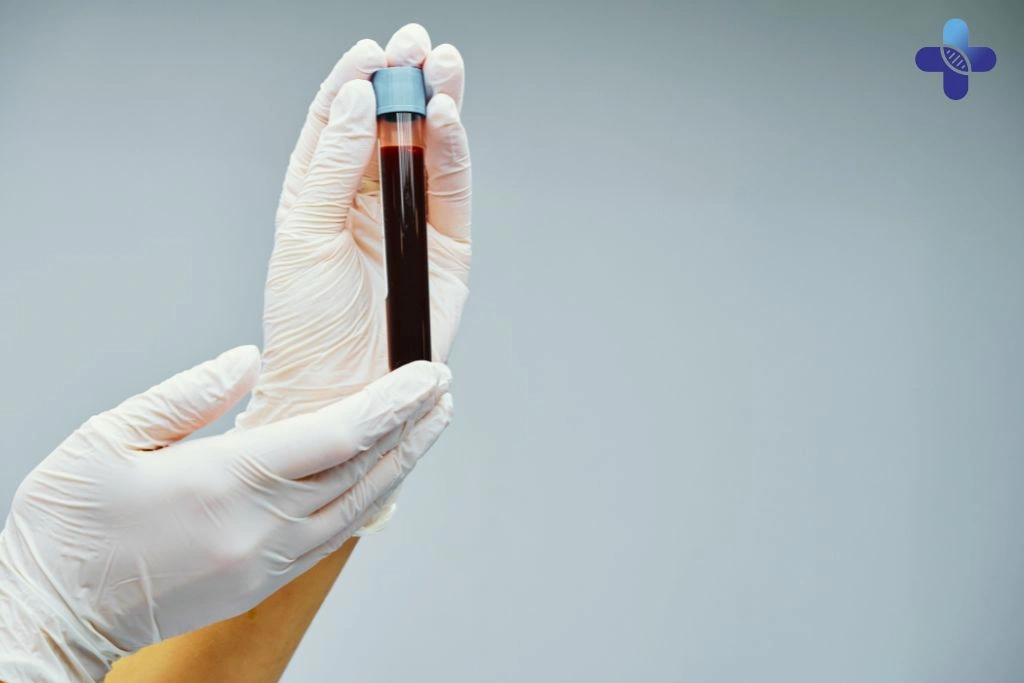You’ve landed in Bali, ready for sunsets, surf, and maybe a little romance. Between the freedom of travel and the thrill of meeting someone new, it’s easy to feel invincible—especially when you think you already know how to stay safe. But many travelers still rely on outdated beliefs when it comes to sexual health, assuming that a condom is enough or that symptoms will be obvious. The truth? These myths can be misleading—and risky.

STD Myths Travelers Still Believe – And Why They’re Risky
If you’ve ever had these thoughts after a casual encounter abroad, you’re not alone. Many travelers rely on what they think they know about sexual health—often shaped by old advice, assumptions, or myths passed around like travel tips. When you’re living in the moment, it’s easy to feel protected simply because things felt safe.
But some of the most common beliefs about STDs are flat-out wrong. And while your holiday memories may fade into nostalgia, the health risks don’t always disappear with them. In this article, we’ll uncover five STD myths travelers still believe—and why replacing them with facts can protect your health long after the trip ends.
I’d Know If I Had an STD
It’s one of the most common phrases people say after a sexual encounter abroad—“I’d know if something was wrong.” It sounds logical. After all, shouldn’t your body give you signs if there’s an infection? But the truth is far less comforting: many STDs show no symptoms at all, especially in the early stages. And by the time you notice something, the infection may have already caused complications or been passed to someone else.
Silent Infections Are More Common Than You Think
One of the most dangerous assumptions is believing that every STD comes with obvious symptoms. In truth, many infections—like chlamydia, gonorrhoea, HPV, and even HIV in Bali—can be completely asymptomatic, especially in their early stages. You could feel totally normal while carrying an infection that slowly worsens over time or puts others at risk.
Why Travelers Often Miss the Signs
When you’re traveling, distractions are everywhere—new places, new people, new experiences. After a short fling or one-time encounter, many travelers assume they’re safe simply because nothing feels off. But absence of discomfort doesn’t mean you’re in the clear. Relying on “feeling fine” is one of the biggest mistakes travelers make.
The Hidden Risks of Not Getting Tested
Left untreated, even symptomless STDs can lead to serious health issues—infertility, pelvic inflammatory disease, long-term immune damage, and more. Beyond that, unknowingly spreading an infection to others is a risk many people never intend but accidentally take.
Testing = Responsibility, Not Paranoia
Being proactive isn’t overreacting—it’s self-awareness. If you’ve had sexual contact during your trip, don’t wait for visible signs. Get tested, even if you feel fine. At Life Everyouth Bali Bali, testing is quick, private, and made for travelers like you.

You Can’t Catch Anything from a One-Night Stand
It’s easy to minimize risk after a single encounter—especially if it was brief, felt safe, or happened with someone who seemed “clean.” But medically, it only takes one moment of unprotected or improperly protected sex to transmit an STD. Frequency doesn’t determine risk—exposure does.
Infections like chlamydia, gonorrhoea, syphilis, or HIV don’t ask how many partners you’ve had. They only need a single opportunity. And even if a condom was used, factors like breakage, improper fit, or incomplete use can leave you vulnerable. For infections spread through skin contact—like HPV or herpes in Bali—even brief foreplay without full penetration can be enough.
Many travelers look back on a one-time experience and assume they’re fine because nothing seems wrong. But the truth is, you won’t always feel symptoms—and by the time you do, the infection may have progressed or been passed to someone else. If you’ve had even one spontaneous encounter during your trip, getting tested isn’t an overreaction—it’s the most responsible thing you can do for yourself and others.
STD Testing Is Complicated and Embarrassing
Many travelers avoid STD testing not because they don’t care, but because they imagine it’s awkward, time-consuming, or even judgmental. Especially in a foreign country, it’s common to worry: Will the staff speak English? Will I have to explain everything? Will I feel ashamed just for asking? These fears are valid—but outdated.
In Bali, STD testing is designed to be simple, discreet, and stress-free—especially for international visitors. At Life Everyouth Bali, there’s no need to navigate confusing hospital systems or book weeks in advance. You can walk in without an appointment, complete your test in under 30 minutes, and receive your results securely—all in a calm, professional setting.
You won’t face judgment—only care. Whether you’re worried about a recent encounter or just want peace of mind before flying home, the team at Life Everyouth will guide you based on your exposure risk and concerns, so you never feel lost or overwhelmed.
Need flexibility? We offer a range of STD Testing Packages in Bali tailored to your needs:
- From Basic to Premium Intimate Care
- Transparent pricing for KITAS holders and non-residents
- Home visit options available across Bali
Testing should never feel complicated or shameful. At Life Everyouth Bali, we make it something you can handle with ease—and dignity.

STD Testing Is Only for ‘Promiscuous’ People
This is one of the most damaging and persistent myths out there. The idea that STD testing is only “necessary” for people with many partners not only spreads stigma—it puts countless others at risk. The truth is simple: STDs don’t discriminate by your relationship history. They spread through exposure, not numbers.
You can be in a monogamous relationship, have just one recent partner, or even be unsure of your partner’s sexual history—and still be at risk. Routine testing isn’t about judging your choices. It’s about protecting your health and anyone you’re intimate with.
Risk Is About Exposure, Not Quantity
Even a single sexual encounter—protected or not—can result in exposure to infections. You don’t need a “track record” to be vulnerable.
Testing = Self-Respect, Not Shame
Choosing to get tested isn’t a confession. It’s a sign that you value your body, your health, and the well-being of your partner.
Anyone Sexually Active Should Consider Routine Testing
Medical guidelines recommend that all sexually active individuals—regardless of how many partners they’ve had—get tested regularly. It’s part of responsible healthcare.
Destigmatizing Testing Helps Everyone
The more we normalize STD testing, the safer we all become. Testing doesn’t label you. It protects you—and helps prevent silent spread in communities, especially among travelers.
So if you’ve been sexually active in Bali—even just once—don’t let stigma stop you from doing the right thing. At Life Everyouth Bali, you’ll be met with support, privacy, and zero judgment.
Replace Misinformation With Action
Misinformation can feel strangely comforting. It allows us to dismiss worry, avoid awkward conversations, and tell ourselves everything is probably fine. But when it comes to your health, assumptions are not enough. Real protection comes from real facts—and informed choices.
If you’ve had sexual contact while traveling in Bali, even once, the smartest thing you can do isn’t to overthink it—it’s to get tested. Not because something feels wrong, but because clarity is better than doubt. Testing isn’t about fear. It’s about stepping into your next chapter with peace of mind, knowing you’ve taken care of yourself and anyone else who matters to you.
At Life Everyouth Bali, we make that step easy. Our clinics in Sanur and Jimbaran are designed for international travelers and expats, with discreet, professional STD testing, English-speaking staff, and no appointment required. You’ll be treated with respect, empathy, and confidentiality—no questions asked.
Book your STD test today or walk in at your convenience. Because your health deserves more than assumptions—it deserves answers.

Conclusion Top 5 STD Myths Among Travelers – What You Need to Know
Traveling gives you freedom—freedom to explore, connect, and sometimes take chances. But when it comes to your sexual health, relying on myths like “I’d know if I had something” or “one time doesn’t matter” can leave you vulnerable. Many infections show no symptoms, and even with protection, risk still exists. Real safety doesn’t come from assumptions—it comes from awareness and action.
At Life Everyouth Bali, we offer discreet, judgment-free STD testing made for travelers like you. Whether it was one night or something more, taking charge of your health is a responsible step, not a fearful one. Book your test or walk in today—because while your holiday may end, your health stays with you.
Frequently Asked Questions Top 5 STD Myths Among Travelers – What You Need to Know
Do most STDs show symptoms right away?
No, most STDs don’t show symptoms immediately—and some never do. Infections like chlamydia, HPV, or HIV can stay silent for weeks or months while still being transmissible. This is why many people unknowingly carry infections and pass them to others. Routine testing helps catch what symptoms can’t.
Can I really get an STD from just one encounter?
Yes, a single exposure is enough to contract an STD. It doesn’t matter how brief or “safe” it felt—if there was sexual contact, there’s always some level of risk. Even STDs like herpes or HPV can be transmitted through skin-to-skin contact alone. It’s the moment of exposure, not the number of partners, that matters.
Are condoms always 100% effective against STDs?
Condoms are highly effective in reducing risk, but they’re not perfect. STDs like herpes, syphilis, or HPV can spread through areas not covered by a condom. Even with perfect use, some risks remain—especially during oral sex or close genital contact. That’s why testing remains important even if you always use protection.
Is STD testing in Bali expensive or difficult?
Not at all. At Life Everyouth Bali, STD testing is fast, affordable, and specifically designed for travelers and expats. You can walk in without an appointment, get tested discreetly, and receive your results quickly. It’s modern, stress-free care—without unnecessary barriers.
Do I need symptoms to get tested?
Absolutely not. In fact, most people who test positive didn’t have any symptoms at all. Testing is about staying informed, not waiting until something goes wrong. Whether you feel fine or not, if there’s been exposure, it’s smart to check.
Will I be judged for getting tested?
No—you’ll be respected for taking care of your health. Medical professionals are trained to provide confidential, non-judgmental care, especially at clinics that serve international travelers like Life Everyouth. Getting tested shows responsibility, not recklessness. You’ll be met with support, not stigma.
Is STD testing in Bali available for tourists?
Yes. Clinics like Life Everyouth Bali in Sanur and Jimbaran are experienced in helping international visitors. Services are English-friendly, discreet, and culturally sensitive. Whether you’re visiting for a few days or staying long-term, you’ll receive professional, respectful care.
How long does testing take?
Rapid tests can give results in as little as 30 minutes. More comprehensive panels may take 1–3 business days, depending on the type of infection being tested. Regardless, the process is quick and designed for convenience. You’ll receive updates securely and with clear follow-up instructions if needed.
What’s the most common myth about STD testing?
That it’s only for “promiscuous” people. In reality, anyone who is sexually active—even once—is encouraged to get tested. STDs don’t care about reputation or frequency, only exposure. Testing is part of responsible, modern health care.
Can I test again if I already did it last month?
Yes, especially if you’ve had a new partner or exposure since then. STD testing isn’t a one-time event—it’s a routine part of staying sexually healthy. How often you test depends on your activity, risk level, and peace of mind. When in doubt, test again.
